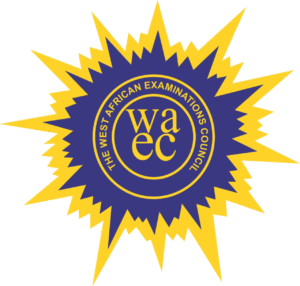Deputy Minister Highlights Ghana’s Education Reforms at Addis Ababa Forum

Ghana’s Deputy Minister of Education, Dr. Clement Apaak, has spotlighted the country’s ambitious education reforms at a high-level African ministerial conference in Addis Ababa, Ethiopia. Speaking at the Innovation Africa 2025 Summit, Dr. Apaak highlighted a range of policy measures and strategic initiatives designed to modernize Ghana’s education system and improve teaching and learning outcomes nationwide.
The three-day summit, themed “Educate and Skill Africa for the 21st Century,” brought together ministers of education, policymakers, and experts from across Africa. The event, which was also attended by Ethiopia’s Deputy Prime Minister Temesgen Tiruneh, focused on accelerating educational innovation, promoting digital skills, and aligning education systems with the demands of a rapidly changing global economy. The conference was part of the African Union’s designation of 2024 as the “Year of Education,” reinforcing the continent’s renewed focus on developing human capital through quality education.
Addressing a panel discussion titled “Ensuring the Professional Development of Quality Teachers to Deliver Curriculum Reform in Africa,” Dr. Apaak emphasized Ghana’s commitment to teacher quality and lifelong learning. He pointed to the country’s teacher licensure programme as a vital component of ongoing reforms.
According to the Deputy Minister, Ghana’s teacher licensing framework ensures that educators maintain professional standards through continuous development. He explained that teachers are required to accumulate credits through ongoing training programmes as a condition for license renewal. This policy, he said, fosters a culture of reflective practice and keeps teachers up to date with modern pedagogical strategies.
“Our teacher licensure system is structured to support ongoing professional growth,” Dr. Apaak said. “We want our educators to be lifelong learners themselves so that they can deliver the best for our learners.”
He also discussed the role of teacher education institutions in preparing future educators for the digital age. Ghana’s colleges of education have now been upgraded to offer Bachelor’s degrees in education, a shift aimed at deepening subject knowledge, improving practical teaching skills, and embedding digital literacy in the curriculum. By transforming teacher training, the government hopes to raise the standard of classroom delivery and better equip graduates to meet contemporary educational challenges.
Another important area of reform discussed by Dr. Apaak was teacher deployment and retention, particularly in underserved areas. He shared details of a targeted initiative designed to attract and retain teachers in remote communities. Under this programme, the government provides allowances, accommodation, and mentorship support to teachers who accept postings in rural and disadvantaged districts.
“Incentive structures are essential in ensuring educational equity,” he noted. “We are creating an environment where teachers feel supported and valued, no matter where they are posted.”
In addition to domestic reforms, Dr. Apaak emphasized Ghana’s commitment to regional cooperation and knowledge-sharing across the continent. He spoke about Ghana’s efforts to promote inter-country teacher exchange programmes within the ECOWAS and African Union frameworks. These initiatives are aimed at fostering collaboration, sharing best practices, and strengthening the overall quality of education in Africa.
“Ghana believes in pan-African collaboration,” Dr. Apaak stated. “We are not just focused on national goals. We see value in sharing our experiences, learning from our neighbours, and contributing to collective progress in education across Africa.”
He also noted Ghana’s participation in continental initiatives like the AU’s Continental Education Strategy for Africa (CESA), as well as efforts to make digital educational resources widely accessible to students and teachers beyond its borders.
The summit concluded with calls for stronger political commitment and investment in education across Africa, especially in digital infrastructure, teacher training, and curriculum reform. Ghana’s presentation was praised for its holistic approach, blending innovation with equity, and serving as a model for countries seeking to reform their education sectors.





